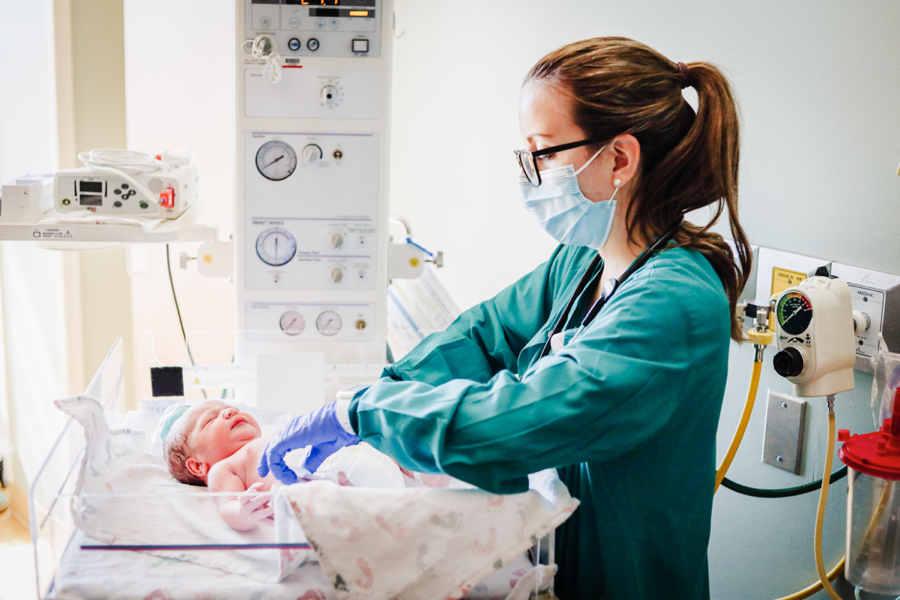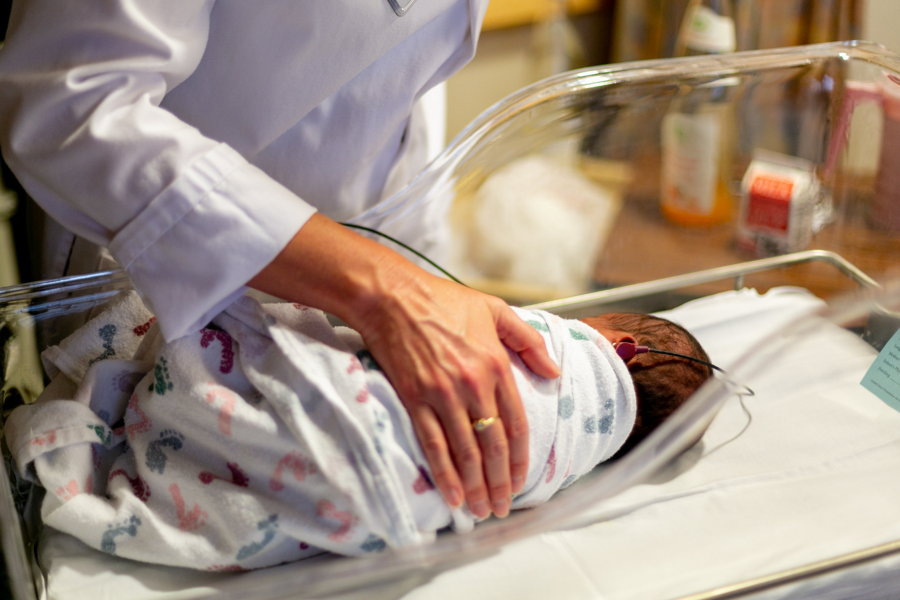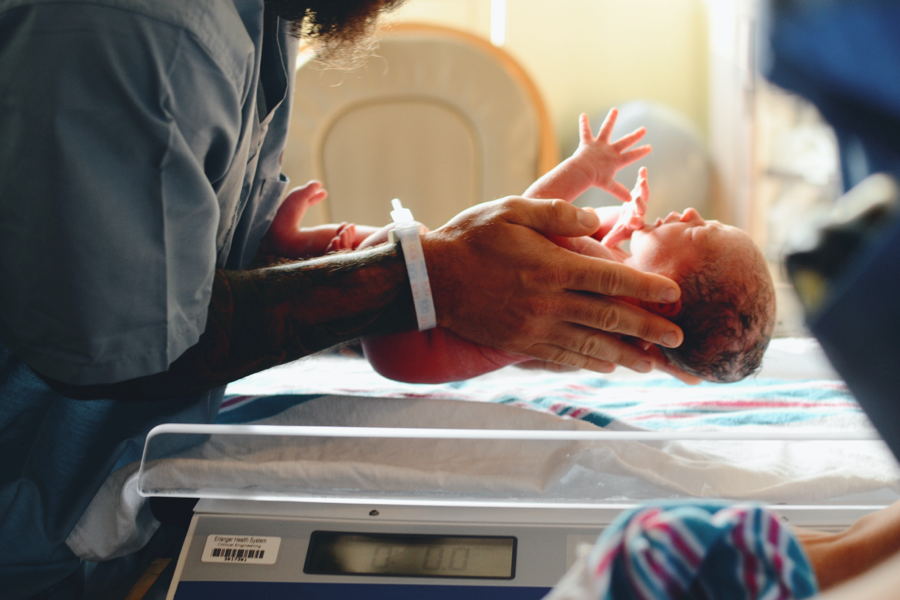
Neonatal Nurse
-
 EveryNurse Staff
EveryNurse Staff
- Last Updated: 05/10/2023

What Is a Neonatal Nurse?
A neonatal nurse is a registered nurse (RN) who has received specialized training in caring for newborn infants, particularly those who are born premature with medical complications, requiring intensive care and monitoring in a neonatal intensive care unit (NICU). These nurses are crucial members of the healthcare team, as they are responsible for caring for the tiniest and most fragile patients in the hospital.
Neonatal nurses perform a wide range of duties that require expertise in areas such as critical care, developmental readiness, and family support. They are responsible for monitoring their patients’ vital signs, administering medications, and providing specialized treatments such as ventilator support and phototherapy. Additionally, they work closely with other healthcare professionals, such as doctors, respiratory therapists, and social workers, to ensure that their patients receive comprehensive care.
What Does a Neonatal Nurse Do?
A neonatal nurse’s role goes beyond just providing medical care. They also act as advocates for their patients, ensuring that their needs are met and their voices are heard. They work closely with parents and families to provide emotional support and guidance during what can be a very difficult and stressful time. Neonatal nurses help families navigate the complex healthcare system, answer questions, and provide reassurance.
The daily responsibilities of a neonatal nurse are extensive and diverse. They include:
Assessing and Monitoring Newborns
Neonatal nurses are responsible for assessing and monitoring newborn babies. They check vital signs, monitor babies’ breathing and heart rates, and keep track of fluid levels. They also evaluate newborns’ pain levels and other symptoms to provide the most appropriate care.
Assessing and monitoring newborns is a crucial aspect of a neonatal nurse’s job. They use specialized equipment to measure vital signs, such as blood pressure and oxygen saturation levels, and to monitor the baby’s heart rate. They also keep track of the baby’s fluid intake and output to ensure that they are getting the necessary nutrients and hydration. Additionally, neonatal nurses assess the baby’s neurological development and behavior to identify any potential issues that may require intervention.
Administering Medications and Treatments
Neonatal nurses are responsible for administering medications and treatments as prescribed by the medical team. This may include administering oxygen, intravenous (IV) fluids, antibiotics, and other medications necessary for the baby’s care plan.
Administering medications and treatments is a critical aspect of a neonatal nurse’s job. They need to have a thorough understanding of the medications and treatments prescribed by the medical team and how to administer them safely and effectively. This includes understanding the appropriate dosages, potential side effects, and how to monitor the baby’s response to the medication or treatment.
Collaborating With the Neonatal Care Team
Neonatal nurses work closely with the neonatologist, pediatricians, respiratory therapists, and other healthcare professionals on the neonatal care team. They collaborate on care plans designed to meet the unique needs of each baby.
Collaborating with the neonatal care team is essential for providing the best possible care for newborns. Neonatal nurses work closely with the medical team to develop and implement care plans that address the baby’s specific needs. They provide regular updates on the baby’s condition and work together to make any necessary adjustments to the care plan.
Different Levels of Neonatal Care
There are different levels of neonatal care, and neonatal nurses play important roles at each level.
Level I neonatal care is provided in a well-baby nursery, where newborns are generally healthy and require routine care. Level II care is provided in a special care nursery, where infants may require more specialized attention, such as low birth weight babies or those who are recovering from medical procedures. Level III is the highest level of neonatal care, and is provided in a NICU where critically ill or premature infants receive intense, specialized care.
Neonatal nurses at each level of care must be able to adapt to the unique needs of their patients. They must be able to provide care for a wide range of medical conditions, from respiratory distress syndrome to congenital heart defects. They must also be able to provide emotional support to families, who may be experiencing a wide range of emotions during this difficult time.
Specialized Skills and Knowledge
Understanding Newborn Physiology and Development
Neonatal nurses need to have a deep understanding of how newborns’ bodies work and develop. They must be able to recognize the signs and symptoms of common neonatal conditions such as respiratory distress syndrome, jaundice, and hypoglycemia. Additionally, they must be knowledgeable about the developmental milestones of newborns and how to promote healthy growth and development.
As part of their training, neonatal nurses learn about the unique nutritional needs of premature infants and how to provide specialized feeding plans to ensure they receive the necessary nutrients for growth and development.
Managing High-Risk Situations and Emergencies
Neonatal nurses must be highly skilled in managing high-risk situations and emergencies that can arise in the NICU. They have to be able to recognize an infant in distress, take quick action, and make decisions to stabilize the baby’s condition if necessary.
In addition to providing medical care, neonatal nurses must also be able to communicate effectively with other healthcare professionals, including neonatologists, respiratory therapists, and social workers, to ensure that the baby receives comprehensive care.
Providing Emotional Support to Families
Neonatal nurses not only provide physical care to the babies but they also provide emotional support to families who have infants in the NICU. Supporting new parents in a stressful and uncertain time can help them feel more secure and have a more positive experience with their baby’s care.
Neonatal nurses often work closely with social workers and other support staff to provide families with resources and information about their baby’s care. They also provide education to parents on how to care for their baby once they leave the hospital.
Summary of Steps
How to Become a Neonatal Nurse
01
Earn an ADN or BSN Degree
Start with an ADN or BSN degree, with a BSN increasingly preferred for comprehensive neonatal nursing education.
02
Obtain an RN License
Pass the NCLEX-RN exam to become a licensed registered nurse.
03
Gain Experience In Pediatrics
Build expertise by working in pediatric units and maternity wards.
04
Pursue Advanced Education (Optional)
Pursue an optional MSN degree for specialized roles.
05
Obtain Neonatal Nurse Certification
Enhance your expertise with certifications like NRP or RNC-NIC.
Steps in Detail
1. Earn an ADN or BSN Degree
Your journey toward becoming a neonatal nurse begins with a strong educational foundation. Most neonatal nurses start by earning a Bachelor of Science in Nursing (BSN) degree. However, some entry-level positions may accept an Associate Degree in Nursing (ADN). It’s worth noting that a BSN provides a more comprehensive and in-depth education, which is increasingly becoming the standard for many nursing roles, including neonatal nursing.
During your BSN program, you’ll cover a broad range of subjects, including but not limited to:
- Anatomy and Physiology: A thorough understanding of the human body’s structure and function is fundamental to providing quality care to newborns.
- Pharmacology: Knowledge of medications and their effects is essential for administering drugs to neonatal patients safely.
- Nursing Ethics: Neonatal nurses often deal with complex ethical dilemmas, so understanding ethical principles in healthcare is vital.
- Patient Care Practices: You’ll learn the fundamentals of patient care, including assessments, interventions, and monitoring.
- Pediatric Nursing: This coursework provides insights into the unique healthcare needs of infants and children.
- Maternal-Child Health: Understanding the health of both mothers and infants is crucial as neonatal nursing often involves caring for newborns in the context of maternity care.
2. Obtain an RN License
After completing your nursing education, you’ll need to obtain a nursing license to practice legally. This involves passing the National Council Licensure Examination for Registered Nurses (NCLEX-RN). This exam assesses your nursing knowledge and competency and is a requirement for licensure in most states.
3. Gain Experience In Pediatrics
While education lays the foundation for your career, hands-on experience is where you’ll truly hone your skills as a neonatal nurse. Many neonatal nursing positions, especially those in Neonatal Intensive Care Units (NICUs), require nurses to have prior nursing experience.
You can gain experience by working in various healthcare settings, such as pediatric units, maternity wards, or general neonatal care units. However, to specialize in Level III NICUs, which care for critically ill or premature infants, you’ll typically need substantial experience in neonatal nursing.
4. Pursue Advanced Education (Optional)
While not obligatory, pursuing an advanced degree can significantly enhance your neonatal nursing career. Many neonatal nurses opt for a Master of Science in Nursing (MSN) degree with a specialization in neonatal care. An MSN provides a deeper understanding of neonatal healthcare, advanced clinical skills, and opens doors to specialized positions or leadership roles in neonatal nursing.
5. Obtain Neonatal Nurse Certification
Certifications validate your expertise in neonatal nursing and enhance your professional profile. For instance, the Neonatal Resuscitation Program (NRP) certification focuses on newborn resuscitation skills, while the RNC-NIC (Registered Nurse Certified in Neonatal Intensive Care) certification recognizes specialized knowledge in neonatal nursing.
Neonatal Nurse Salary
Neonatal nurses are highly skilled and specialized healthcare professionals who provide critical care to newborn infants. Due to the demanding nature of their work and the specialized knowledge and skills required, neonatal nurses are typically compensated with competitive salaries.
In the United States, the salary range for neonatal nurses can vary based on several factors. According to the U.S. Bureau of Labor Statistics, as of 2022, the mean annual wage for registered nurses, including neonatal nurses, was $89,010. However, it’s important to note that this figure is an average and can vary depending on factors such as geographic location, years of experience, level of education, and the employing healthcare facility.



